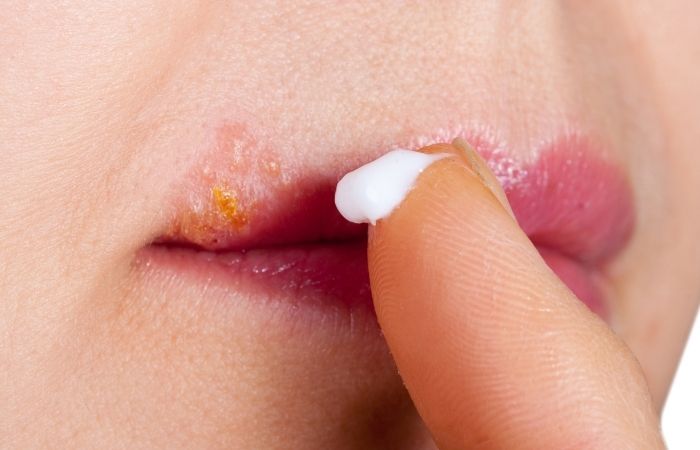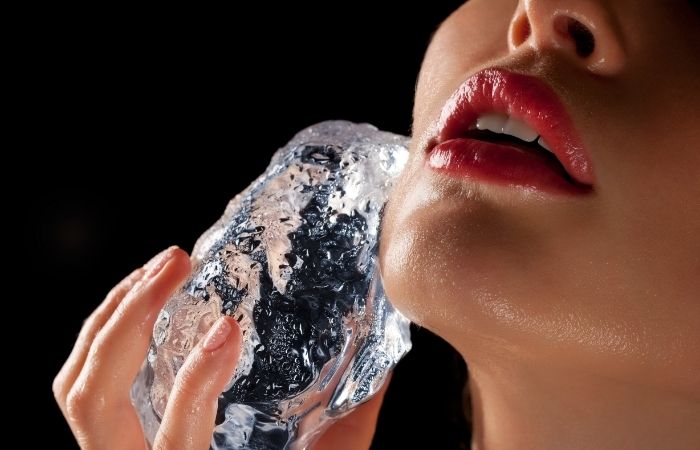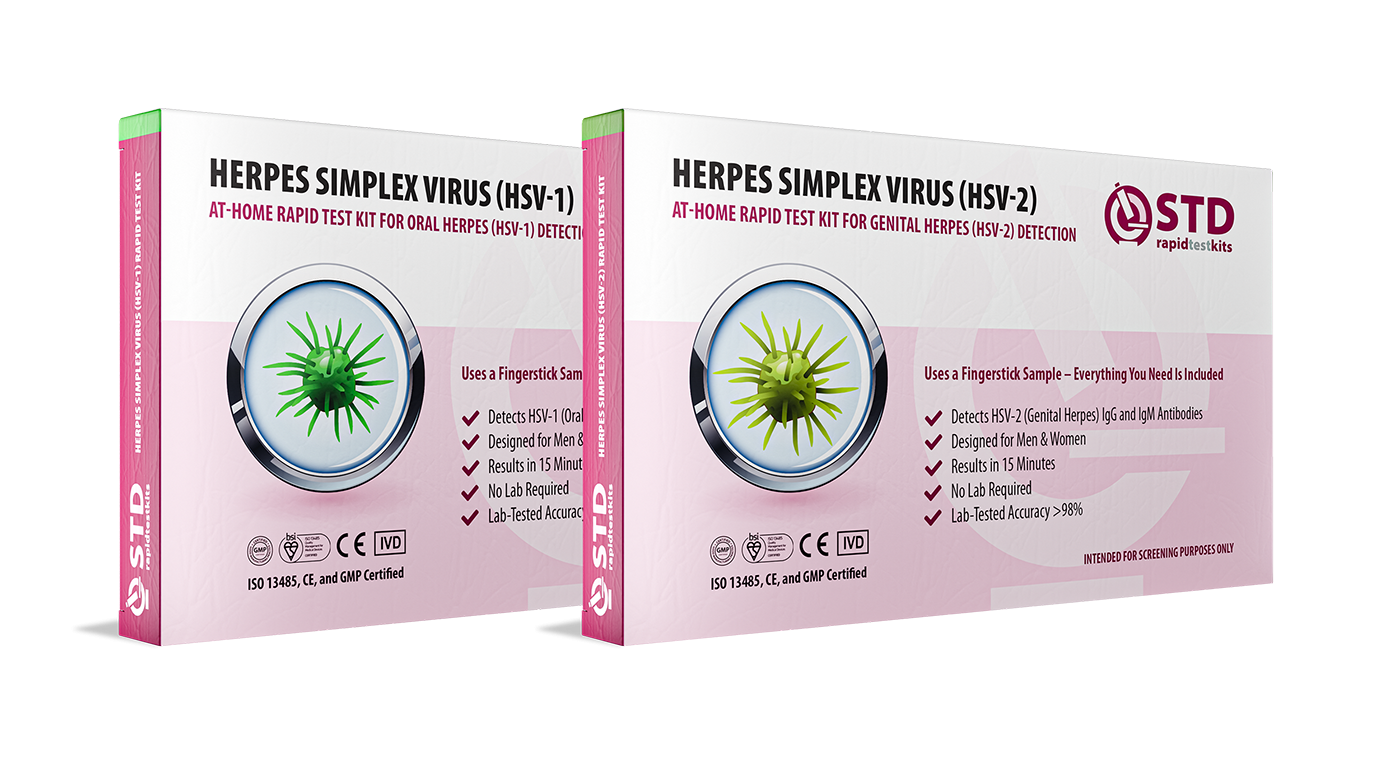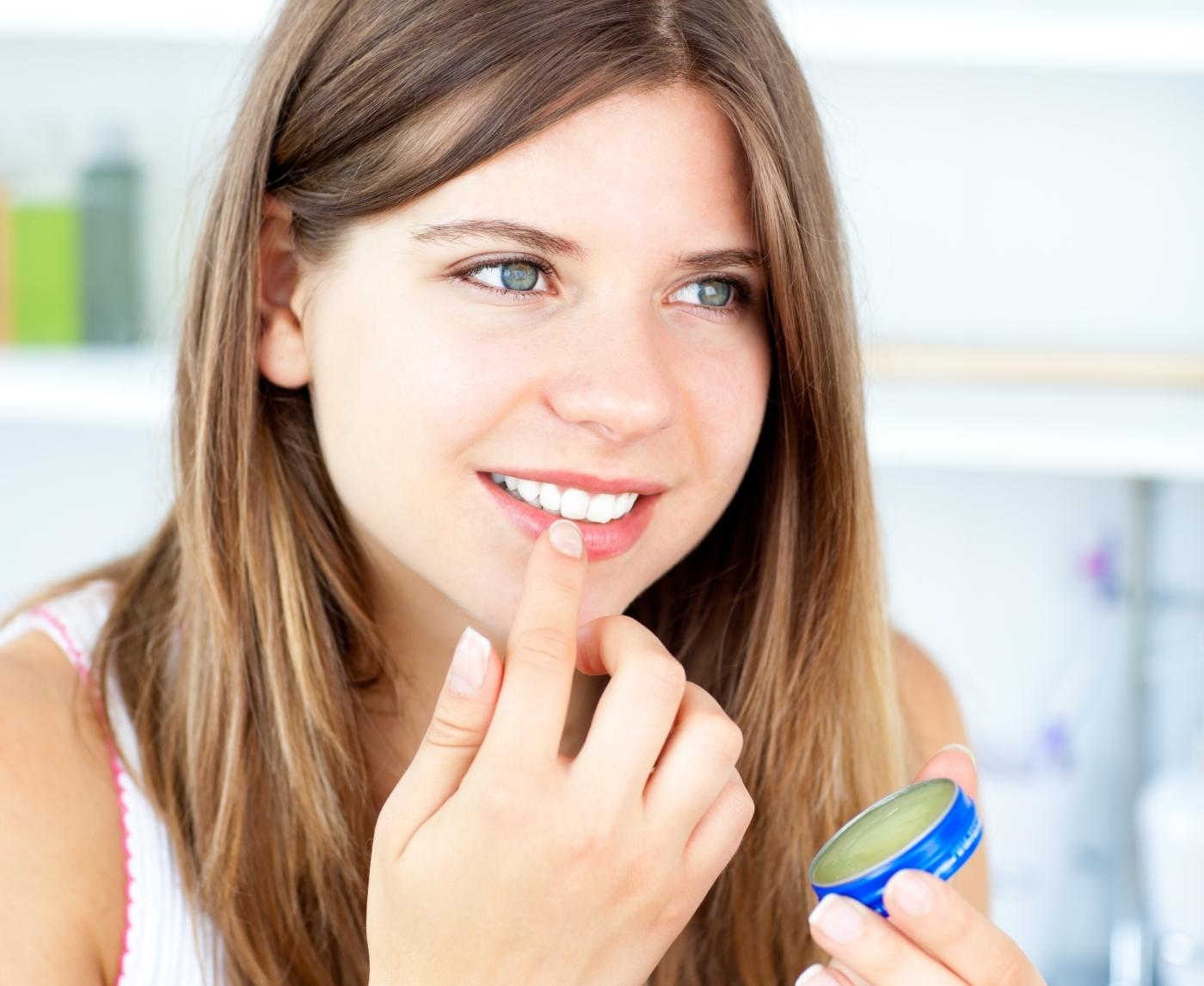Quick Answer: Vaseline doesn’t treat cold sores or kill the herpes virus, but it can help protect the sore, reduce cracking, and ease pain. For healing, you’ll need antiviral treatments or medicated creams.
“I Panicked, Googled ‘Cold Sore Vaseline,’ and Slathered It On”
Taylor, 25, felt the burn at 1:42AM. They were supposed to go on a third date that weekend, and now their bottom lip was swelling with that telltale fire. They didn’t have Abreva. They didn’t have time to see a doctor. They had Vaseline.
"I didn't even know if it was a cold sore at first," Taylor said. "I just knew something was wrong and I panicked. I grabbed Vaseline because it was the only thing I had that felt remotely soothing."
For a lot of people, petroleum jelly is a go-to because it’s safe, it’s everywhere, and it feels like doing something. But is that something enough? And how do you even know if it’s a cold sore in the first place?

People are also looking for: Can STDs Affect Sperm? What Men Should Know
This Isn’t Just Dry Skin, How Cold Sores Actually Start
Cold sores are caused by the Herpes Simplex Virus type 1 (HSV-1), and they usually start with a warning sign: tingling, itching, or burning before the blister even shows up. Then comes a cluster of fluid-filled blisters, usually around the lips or nostrils.
Common symptoms include:
- Tingling or burning: Usually 24–48 hours before a sore appears
- Painful blisters: Often in clusters, filled with clear fluid
- Crusting and scabbing: The sore cracks, oozes, and heals over 7–14 days
- Fever, fatigue, or swollen lymph nodes: Especially with your first outbreak
Unlike pimples or allergic reactions, cold sores are viral and contagious, even when they’re healing. You can get them from kissing, oral sex, sharing razors or towels, or even a well-meaning aunt kissing your cheek as a kid.
Why Everyone Has an Opinion About Vaseline and Cold Sores
Ask three people what to put on a cold sore, and you’ll get three wildly different answers. Your best friend says toothpaste. A Reddit thread swears by ice cubes and prayer. Your mom recommends petroleum jelly and “just leaving it alone.” So who’s right?
The confusion comes from two things:
- Cold sores are extremely common: Over 3.7 billion people under age 50 carry HSV-1 globally, according to the World Health Organization.
- People confuse comfort with cure: Just because something feels better doesn’t mean it heals faster, or at all.
That’s where Vaseline sits: on the fence between fact and feeling. It doesn’t heal, but it protects. It doesn’t shorten outbreaks, but it makes them suck less. And for people desperate to do *something,* that can feel good enough.
But always remember, comfort is valid, but misinformation can delay healing. When in doubt, turn to tested antivirals and ask a healthcare provider (or test from home).
What NOT to Put on a Cold Sore (And Why It Matters)
In moments of panic, people reach for whatever’s within arm’s length. But some of the most common cold sore “remedies” actually make things worse. Here’s what to skip, no matter what your cousin's ex said on TikTok:
- Toothpaste: Contains ingredients like menthol and hydrogen peroxide that dry out and irritate skin, can delay healing.
- Rubbing alcohol or hydrogen peroxide: Kills bacteria, yes, but also kills healthy skin cells. Slows recovery and increases pain.
- Lemon juice or apple cider vinegar: Highly acidic. Can burn the sore and lead to cracking or secondary infection.
- Essential oils (undiluted): Tea tree oil, peppermint, and eucalyptus are popular but potent. Always dilute and spot test.
- Makeup or concealer: Can trap bacteria, worsen irritation, and spread the virus to applicators and other areas.
If you’re tempted to experiment, don’t. You’re better off with a proven treatment and a safe moisturizer like Vaseline. Or, better yet, get ahead of it with an at-home herpes test so you know exactly what you’re dealing with next time.
Check Your STD Status in Minutes
Test at Home with RemediumOral Herpes Test Kit

 For Men & Women
For Men & Women Results in Minutes
Results in Minutes No Lab Needed
No Lab Needed Private & Discreet
Private & DiscreetOrder Now $33.99 $49.00
So What Does Vaseline Actually Do?
Here’s the truth: Vaseline (aka petroleum jelly) won’t treat the virus. It has no antiviral ingredients. But what it can do is help protect the skin while it heals.
According to the Cleveland Clinic and American Academy of Dermatology, petroleum jelly can be helpful in these ways:
- Moisture barrier: Prevents the sore from drying out and cracking open
- Pain relief: Soothes the scabbed area and reduces irritation
- Protection: Shields from dirt, bacteria, and friction
But don’t get it twisted, Vaseline is a comfort aid, not a cure. Think of it like putting a bandage over a cut. It doesn’t heal the wound, but it helps the process feel less brutal.
Also: never apply Vaseline during the weeping/blister phase without washing your hands thoroughly. It’s easy to spread the virus to other areas of your face, or even your eyes.
Cold Sores, Herpes, and the Moist vs. Dry Debate
If you've ever searched "should I keep a cold sore moist or dry," you already know: the internet is deeply divided. Some swear drying it out speeds healing. Others say moisture prevents painful cracking. Here's the medical truth.
Cold sores heal in stages: from tingling to blistering, then scabbing and crusting. Keeping it too dry can cause the sore to split open, delaying healing and increasing the risk of infection. Too moist, and you may trap heat and create a breeding ground for bacteria.
Dermatologists generally agree: balance is key. Use petroleum jelly (like Vaseline) during the crusty, cracking phase to reduce pain. But don’t slather it on constantly. Let your skin breathe.
More importantly, pair it with antiviral treatment if you want to actually shorten the outbreak.
What Actually Speeds Up Healing?
If your goal is faster healing, you’re going to need more than a glossy lip. Here’s what works, according to both studies and frontline user experiences.
- Abreva (docosanol): The only FDA-approved OTC cold sore cream. Works best if applied early, during the tingling stage.
- Prescription antivirals: Acyclovir, valacyclovir, and famciclovir can reduce healing time if started early.
- Ice: Temporarily numbs pain and inflammation.
- Petroleum jelly: Eases discomfort, prevents scabbing trauma, but not antiviral.
- Lysine supplements: Anecdotally helpful for some, but results vary.
Studies have shown that a combination of an antiviral cream and a moisturizing barrier (like petroleum jelly) may offer the best of both worlds: treatment and comfort. Just be sure to apply the antiviral product first, then top with Vaseline, not the other way around.

People are also looking for: What’s the Difference Between an STD and an STI?
When It’s Not “Just” a Cold Sore
More than half of adults carry HSV-1, the virus that causes oral herpes, even if they never show symptoms. But sometimes that first outbreak hits hard and confuses the hell out of people.
If this is your first time dealing with a lip sore, or if it’s unusually large, painful, or spreading fast, it might be time to test. You can get oral herpes through:
- Kissing: Even if the other person has no visible sore
- Oral sex: Genital HSV-1 transmission is rising in younger populations
- Shared utensils or razors: Rare, but possible if sores are active
The virus lives in your nerves forever. That doesn’t mean you’ll always have outbreaks, but it does mean you’re a carrier. And yes, it’s totally possible to have both HSV-1 (oral) and HSV-2 (genital). The only way to know is testing.
If you’re not sure what kind of sore you’re dealing with, or if you want peace of mind, you can test discreetly from home.
How to Prevent the Next Flare-Up
Once you’ve had a cold sore, you’re likely to get another, usually triggered by stress, UV exposure, illness, or hormonal changes. Here’s how to lower your chances:
- Use SPF lip balm daily: Sunlight is a major trigger
- Manage stress: Meditation, sleep, and downtime matter more than you think
- Know your cycle: Some folks flare up around their period or after getting sick
- Take antivirals preventatively: If you get frequent outbreaks, a daily antiviral can help
And yes, keeping petroleum jelly in your toolkit is still a solid move. Just know its limits: it protects the skin but doesn’t fight the virus.
Whether it’s a flare-up or a first-time freakout, you deserve to understand what’s happening, and what to do next.
Check Your STD Status in Minutes
Test at Home with RemediumGenital & Oral Herpes Test Kit

 For Men & Women
For Men & Women Results in Minutes
Results in Minutes No Lab Needed
No Lab Needed Private & Discreet
Private & DiscreetOrder Now $75.00 $98.00
For all 2 tests
FAQs
1. Does Vaseline kill the herpes virus?
No, Vaseline (petroleum jelly) doesn’t kill the virus. It helps protect the skin and reduce discomfort but has no antiviral properties.
2. Can I use Vaseline with Abreva?
Yes, apply Abreva first and let it absorb. Then apply a thin layer of Vaseline to lock in moisture and protect the sore from cracking.
3. Does Vaseline help cold sores heal faster?
Indirectly, yes. It keeps the area moist and reduces scabbing, which can help prevent delays in healing, but it doesn’t shorten healing time on its own.
4. Should I keep a cold sore moist or dry?
Moist, but not wet. Use products like Vaseline to prevent cracking but avoid overapplying. Let the sore breathe.
5. What stage of a cold sore should I use Vaseline?
Best during the scab or cracking phase. Avoid during blistering unless your hands are washed thoroughly to prevent spreading the virus.
6. Can you spread herpes by using Vaseline?
Not from the Vaseline itself, but if you apply it with contaminated fingers and then touch another part of your body (like your eye), you can spread the virus.
7. Is Vaseline better than lip balm for cold sores?
Lip balm often contains fragrances or menthol, which can irritate sores. Vaseline is fragrance-free and safe as a barrier.
8. Can I kiss someone if I put Vaseline on a cold sore?
No, Vaseline doesn’t block transmission. You’re still contagious even if the sore is covered.
9. How long do cold sores last?
Most cold sores last 7–14 days. Antiviral meds can shorten this if taken early.
10. Do I need to get tested if I have a cold sore?
Not always, but it’s smart, especially if it’s your first outbreak or you’re unsure whether it’s herpes or something else. At-home STD kits are a discreet option.
You Deserve Answers, Not Assumptions
If you're standing in front of the mirror right now, lip burning, fingers shaking over a jar of Vaseline, take a breath. You're not dirty. You're not alone. And you're not without options.
Vaseline can comfort, but it can’t cure. If you want healing, clarity, and long-term answers, you need more than guesswork. You deserve facts, and a plan.
Don’t wait and wonder, get the clarity you deserve. This at-home combo test kit checks for herpes and other common STDs discreetly and quickly.Sources
Sources
1. Cleveland Clinic – Cold Sores
2. American Academy of Dermatology – Cold Sore Treatment
3. PubMed – Comparative Study: Honey vs. Acyclovir










